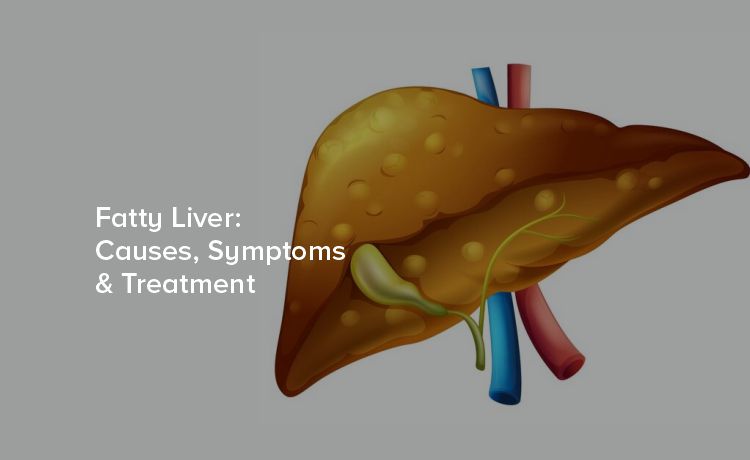
In the shadows of public health conversations, there exists a pervasive condition silently afflicting millions across the globe: fatty liver disease. Once considered a harmless side effect of modern living, the alarming rise in cases of fatty liver disease mirrors the surge in obesity rates, emerging as a red flag signaling a broader health crisis. What's particularly concerning is that fatty liver often develops without any external symptoms, earning it the moniker 'the silent epidemic'.
Fatty liver disease, or hepatic steatosis, occurs when fat accumulates in the liver. While some fat in the liver is normal, too much can lead to liver inflammation and, over time, to more severe forms of liver disease. It is an umbrella term for various conditions ranging from benign, non-alcoholic fatty liver (NAFL) to its more progressive stages, including non-alcoholic steatohepatitis (NASH), fibrosis, and cirrhosis.
The statistics are grim — it is estimated that up to a quarter of the world's adult population may have early stages of fatty liver disease, a number that is inextricably linked to the rise in obesity rates and a sedentary lifestyle. The shared risk factors make fatty liver disease a burgeoning concern, particularly in Western countries where high-calorie diets and physical inactivity are the norm.
Understanding the underlying causes of fatty liver disease is crucial in combating its spread. For the majority of cases, including NAFL and NASH, the culprits are overwhelmingly metabolic in nature. Insulin resistance, where the body's cells don't respond adequately to insulin, plays a pivotal role. This often leads to an influx of fat into the liver, perpetuated by high intake of sugar and refined carbohydrates, which prompt the liver to store excess energy as fat.
Alcohol use, certain medications, rapid weight loss, and even genetics can also contribute to the development of fatty liver disease. The complexities of these causes underscore the multifaceted approach required to manage and prevent this condition.
One of the most insidious aspects of fatty liver disease is its lack of symptomatic presence in many individuals. It is often discovered incidentally during routine blood tests or imaging studies for an unrelated condition. When symptoms do manifest, they typically occur in the later stages of the disease and can include fatigue, weakness, weight loss, and upper abdominal pain. Unfortunately, these symptoms are non-specific, making a definitive diagnosis challenging.
If fatty liver is suspected, a comprehensive evaluation, including blood tests and imaging, such as ultrasound or MRI, are the primary tools for diagnosis. Liver biopsy, though invasive, may be necessary for differentiating between NAFL and NASH cases, which is critical for proper management.
Given the pronounced association with obesity and metabolic syndrome, lifestyle interventions are at the forefront of both preventing and managing fatty liver disease. Weight loss through a combination of dietary modifications and regular physical activity has shown to reduce liver fat content and improve liver health.
Adopting a diet low in added sugars and refined carbohydrates, while high in fruits, vegetables, and whole grains, is a fundamental component of a liver-healthy diet. Avoiding alcohol (in the case of NAFL) and the judicious use of medications are also important aspects of lifestyle changes. Behavioral strategies to maintain these changes long-term, such as support groups and cognitive-behavioral therapy, are emerging as essential elements to support individuals in their health journey.
While lifestyle modifications remain the mainstay of fatty liver disease management, there is a palpable excitement surrounding the development of pharmacological treatments. Several medications are currently being investigated for their potential to treat NASH and its associated liver damage. These therapies target different pathways in the complex pathogenesis of NASH, from reducing liver inflammation to directly addressing the accumulation of fat in the liver.
Notably, the recent FDA approval of certain drugs marks a significant step forward in the availability of treatments for NASH. These medications offer new hope for patients with advanced NASH and may soon lead to unprecedented breakthroughs in treating this condition. The future holds promise for additional drug approvals and the development of personalized medicine strategies for fatty liver disease.
In the vigils of scientific advancements, integrative and holistic approaches provide complementary avenues to support liver health. Nutraceuticals, including specific vitamins, minerals, and herbal supplements, are being explored for their liver-protective properties.
Yoga, meditation, and other stress-reduction techniques have also shown promise in improving liver function, possibly by reducing inflammation and improving insulin sensitivity. These approaches are not meant to replace conventional medical treatments but to augment them, providing a more comprehensive framework for health.
Addressing fatty liver disease requires a concerted effort from public health initiatives, government organizations, and advocacy groups. The need for increased awareness, early detection, and access to healthcare for those affected by this condition cannot be overstated.
Campaigns promoting healthy diets, regular exercise, and routine health screenings are essential to combatting the rise of fatty liver disease. Furthermore, it is imperative to advocate for policies that support these initiatives, making healthy living options more accessible and affordable for all.
The trajectory of fatty liver disease is a sobering reflection of the challenges facing modern public health. Yet within this complex landscape lies the opportunity for transformation. By leveraging a comprehensive approach encompassing medical innovation, lifestyle interventions, and supportive policies, we can stem the tide of fatty liver disease. Take the first step towards a healthier liver: Book your appointment with the experts at Citizens Specialty Hospital for advanced fatty liver disease treatment in Hyderabad.